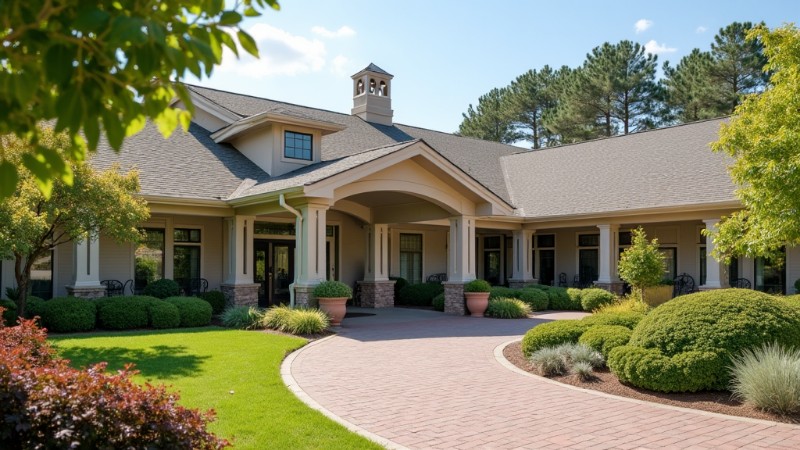With an aging global population, healthcare is placing greater emphasis on individualized care for seniors. Today’s older adults are looking for more than just medical interventions; they value a well-rounded approach that promotes their physical, mental, and emotional wellness.
In response, healthcare providers, government bodies, and specialized caregivers are evolving to create individualized care models that support seniors’ unique needs and enhance their lives. This article explores how personalized care models are reshaping senior care, including innovative approaches, key challenges, and the emerging technologies driving this transformation.
Key Takeaways
Personalized care models are evolving to provide individualized support for seniors’ physical, mental, and emotional well-being.
- Traditional one-size-fits-all approaches to elder care are being replaced by personalized care models that prioritize each senior’s unique health profile, preferences, and lifestyle.
- Innovative technologies such as telehealth, artificial intelligence, and wearable devices are making healthcare more accessible and tailored for seniors.
- Despite challenges in cost, caregiver shortages, and data privacy, personalized senior care is becoming the standard approach to elder care, prioritizing holistic well-being and empowering seniors to maintain independence.
A shift towards individualized senior care
Traditional models of elder care often adopt a one-size-fits-all approach, which fails to account for each senior’s unique health profile, preferences, and lifestyle. Today, personalized care addresses these limitations by focusing on individualized support, integrating care models that prioritize physical health, emotional well-being, and social connectedness.
Healthcare professionals emphasize that personalized care is not only about treating illnesses but creating an environment that promotes overall well-being. This approach involves close collaboration between caregivers, healthcare providers, and the seniors themselves, often including family members in decision-making processes.
Personalized care models allow caregivers to craft specific care plans based on medical histories, mental health needs, and personal preferences, which can lead to improved outcomes and greater satisfaction among seniors.
Government policies are also increasingly supporting personalized elder care. Many countries have introduced initiatives aimed at providing seniors with more tailored healthcare services and community support programs that focus on enhancing quality of life.
These policies emphasize preventive care, which helps seniors maintain their independence and reduces hospital readmissions, lowering healthcare costs in the long run.
Mental and emotional health in senior care
While physical health has traditionally been the primary focus of senior care, there is growing recognition of the importance of mental and emotional well-being in promoting a holistic sense of health.
Emotional support and mental health are vital aspects of personalized care, especially given the challenges many seniors face, including isolation, loss of mobility, and changes in cognitive abilities. Addressing mental health can reduce feelings of loneliness, depression, and anxiety, which are commonly reported by seniors but often overlooked.
Innovative approaches to mental health in senior care include group therapies, pet therapy, and art therapy, each aimed at creating a sense of purpose and belonging. Some organizations offer social activities that connect seniors with peers and community members, fostering a supportive social network.
Technology also plays a role, with virtual therapy sessions and online support groups gaining popularity as accessible resources for mental health support.
Moreover, caregivers are increasingly trained to provide emotional support alongside medical care. Many elder care organizations now require caregivers to undergo mental health training, equipping them with skills to identify signs of emotional distress and provide appropriate support. This shift recognizes that addressing mental health can be as crucial as managing chronic physical ailments in improving seniors’ overall quality of life.
Innovations driving personalized senior care
Technology has significantly transformed the landscape of personalized senior care, with advancements in telehealth, artificial intelligence, and wearable devices making healthcare more accessible and tailored.
Telehealth platforms enable seniors to consult healthcare professionals from their homes, reducing the need for travel and ensuring continuous monitoring of chronic conditions. Such technology is particularly beneficial for those with mobility issues or who live in remote areas, giving them access to medical support that was previously out of reach.
Artificial intelligence (AI) and machine learning are also key drivers of personalized care. AI-powered systems can analyze health data to predict health issues and customize care plans.
For instance, AI can help monitor seniors’ vital signs and alert caregivers to potential health risks, allowing for prompt intervention. Machine learning algorithms analyze patterns in seniors’ behaviors, enabling early detection of changes in health conditions that may otherwise go unnoticed.
Wearable devices, such as smartwatches, play an essential role in providing real-time data on seniors’ physical health. These devices track vital signs, monitor physical activity, and even detect falls, offering insights into seniors’ health status. By collecting and analyzing this data, caregivers can adjust care plans to meet the evolving needs of each individual, making senior care more dynamic and responsive.
In addition, smart home technology enhances safety and convenience for seniors living independently. Voice-activated devices allow seniors to control household functions without physical exertion, while automated systems monitor medication schedules, track movement, and provide reminders, ensuring seniors adhere to their routines and reduce the risk of accidents.
Implementing personalized senior care
Despite the advancements in personalized care, significant challenges remain. One of the foremost issues is the cost associated with individualized care plans and advanced technologies.
Many seniors rely on fixed incomes, and personalized care can be financially burdensome. Governments and insurance providers have started addressing this gap by introducing subsidized programs and offering incentives to make personalized care more affordable. However, there is still a need for more comprehensive policies to ensure that all seniors have access to quality personalized care regardless of their financial situation.
Another challenge lies in the caregiver shortage, which has worsened due to the rising demand for elder care and a shrinking pool of qualified professionals. Addressing this gap requires not only recruitment but also improved training programs that focus on skills necessary for providing personalized care.
By equipping caregivers with the tools and knowledge needed to deliver tailored support, healthcare systems can better meet the diverse needs of seniors. Increased support and benefits for caregivers, such as flexible work arrangements and mental health resources, can also reduce burnout and improve the quality of care provided.
Additionally, privacy concerns have emerged with the integration of technology in senior care. Collecting health data through wearables, telehealth, and AI systems raises questions about data security and privacy.
Healthcare providers are tasked with safeguarding this sensitive information and ensuring it is used only for its intended purpose. Robust cybersecurity measures and clear data-sharing policies are essential to build trust among seniors and their families, who may be wary of technology’s role in caregiving.
Finally, there is the challenge of ensuring seniors’ comfort with technology, as not all seniors are familiar with digital tools. To address this, many healthcare providers offer training sessions and user-friendly interfaces tailored for seniors.
Some organizations have developed simplified devices specifically designed to be accessible for seniors with limited technological experience, helping bridge the digital divide in elder care.
The future of senior care
As the healthcare industry continues to evolve, personalized senior care will likely become the standard approach to elder care. This shift toward individualized support reflects broader societal changes in how we perceive aging and the needs of the elderly population.
By prioritizing holistic well-being, personalized care not only improves seniors’ quality of life but also empowers them to maintain independence and a sense of purpose.
The future of senior care will undoubtedly be influenced by further technological advances, policy changes, and evolving care models. As the population of seniors grows, the need for accessible, high-quality personalized care will become even more pressing.
Embracing innovation while addressing the challenges associated with cost, caregiver shortages, and data privacy will be crucial in building a healthcare system that truly caters to the needs of seniors.
Personalized senior care is a testament to the progress society has made in recognizing the inherent value of each individual’s experience and well-being. By investing in tailored approaches and addressing the unique challenges faced by the elderly, healthcare providers, governments, and caregivers can pave the way for a future where seniors live healthier, more fulfilling lives.














